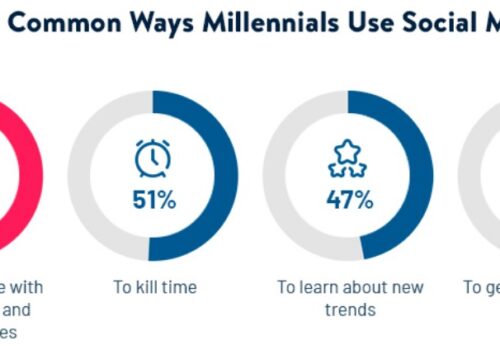The United Kingdom officially left the European Union on December 31, 2020, at 23:00. The Brexit vote had caused a lot of uncertainty and drama.
Now, it’s important for businesses operating in the UK and Europe to understand the implications of Brexit and adapt to the new realities.
Post-Brexit Marketing Facts are crucial in navigating this changed terrain and making informed decisions. The EU-UK Trade & Cooperation Agreement came into force provisionally in January 2021.
By delving into specific facts and trends, we can gain insights into the post-Brexit marketing landscape and equip ourselves with the knowledge needed to thrive in this era of transition and adaptation.
Image credit: Pexels
What Influence Does This Have on The Economy?
- Exports to the EU decreased by about 5.3 billion British pounds.
- The value of imports decreased by 7.2 billion British pounds.
- The UK’s major trading partner was the European Single Market before Brexit, accounting for 51.6 percent of all imports and 53 percent of exports.
- The EU provides one-quarter of the meals consumed in the United Kingdom. The main food imports from the EU are fruits and vegetables, as well as meat.
- Prior to Brexit, the EU supplied 80% of the UK’s food imports.
- During the first 10 months of this year, exports done by the UK to the EU were down 12% from pre-pandemic levels.
- UK’s imports to the European Union were decreased by more than 20% compared to before the outbreak.
- Exports by the UK to the rest of the world were down 7 percent, or £12 billion, from January to October 2021 compared to the same period in 2019.
- In the very same time period, UK imports decreased by 3% to £227 billion pounds.
- The drop in exports and imports between the UK and EU, with exports falling by £5.3 billion and imports by £7.2 billion, indicates a significant shift in trade dynamics, likely impacting the overall economy.
- With one-quarter of food in the UK previously coming from the EU, mainly fruits, vegetables, and meat, the changes in trade could affect food supply and prices.
- The overall reduction in trade, both with the EU and globally, suggests a reshaping of the UK’s economic landscape post-Brexit.
Statistics on Post-Brexit Marketing
- According to a survey conducted by Econsultancy, 10% of respondents said they have executed a Brexit marketing plan.
- In light of Brexit, 58 percent of respondents said their company hadn’t yet made any adjustments and had no plans to do so.
- Before Brexit, more than half of the UK’s imports (51.6%) and exports (53%) were with the EU, which was its main trading partner at the time.
- Before Brexit, the EU accounted for 80% of the UK’s food imports.
- UK exports to the EU have decreased by 12% and imports from the EU have fallen by over 20% since before the pandemic.
- UK’s exports to the rest of the world fell by 7%, and imports decreased by 3%.
FAQs
📈 How has Brexit affected market access and trade for UK businesses?
Brexit has resulted in changes to trade agreements and tariffs. UK businesses may have limited access to EU markets, requiring them to explore new markets or adjust their trade strategies.
🌍 What are the implications of Brexit on international marketing strategies?
International marketing strategies must consider new trade dynamics and regulatory requirements. Businesses may need to tailor their campaigns to fit the specific regulations of target countries.
🛒 How have consumer preferences and behaviors changed since Brexit?
Consumer sentiment and purchasing patterns have shifted. Marketers need to conduct updated market research to understand these changes and adjust their strategies accordingly.
💰 What financial considerations should marketers keep in mind when planning post-Brexit campaigns?
Budget allocation, currency fluctuations, and potential tax implications are financial aspects marketers should consider when planning and executing campaigns post-Brexit.
💻 How can digital marketing strategies be adapted for the post-Brexit era?
Digital marketing strategies should consider localization, compliance with data protection laws, and tailored content to resonate with specific audiences in different regions.
Quick Links:
- Nonprofit Statistics, Facts, and Figures
- Internet Statistics & Facts
- Mobile eCommerce Statistics
- Blogging Statistics
- Pinterest Statistics
- Mobile eCommerce Statistics
Conclusion: Post Brexit Marketing Facts 2025
Succeeding in the marketing world after Brexit requires businesses to be flexible, understand new rules, and keep an eye on changing customer habits.
To achieve this, businesses should adapt their strategies, consider new markets, and communicate clearly with their customers.
It is essential for online businesses to use data and technology wisely. By staying informed and being ready to adjust as needed, businesses can thrive in post-Brexit marketing.
Sources: Tweak, Kantar, BBC, Mopinion, Statista, MarketingWeek, Insights





